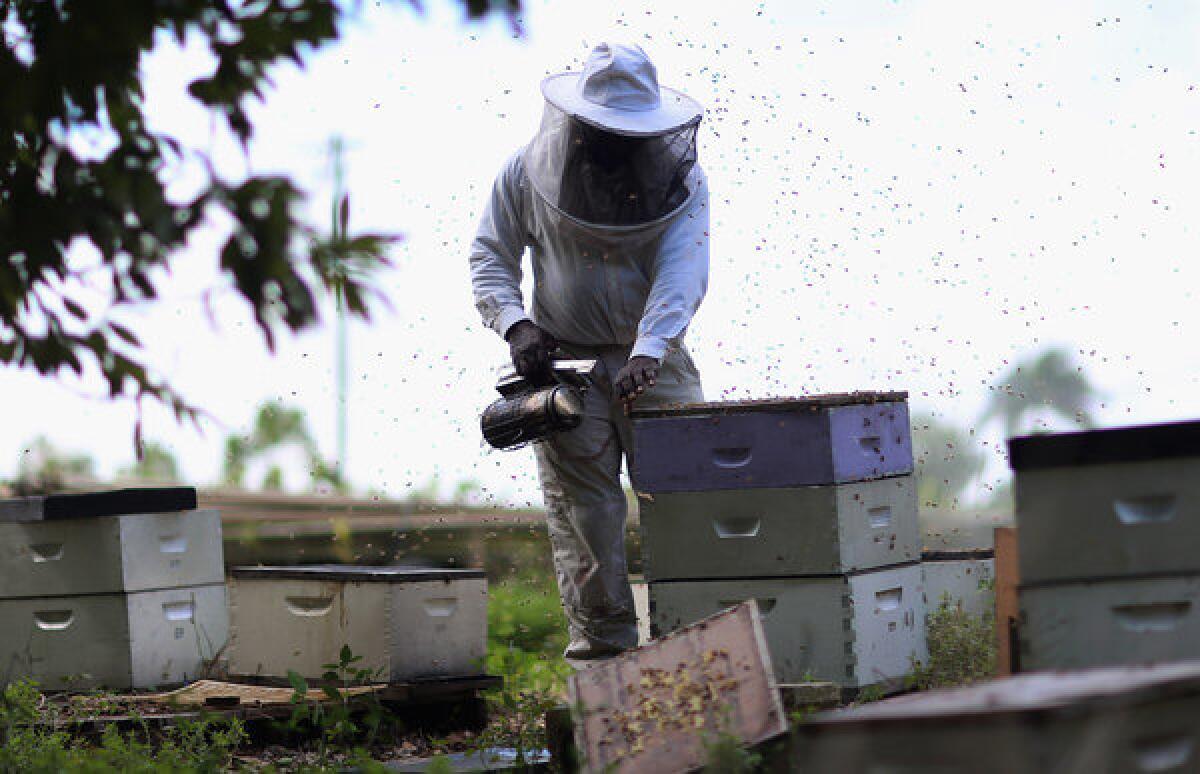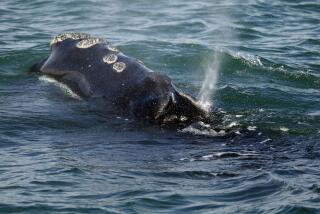Pesticides, parasites and poor forage hurting bee pollinators

- Share via
Although honeybee loss slowed last year, it remains at dangerously high levels, according to a new federal report that concluded there was no single remedy for the colony collapse that has hit America’s hard-working crop pollinators.
The report, released Thursday by the U.S. Department of Agriculture and the Environmental Protection Agency, attributed the colony decline to a number of factors, including pesticide exposure, parasites and poor nutrition.
Since 2006, when colony collapse disorder emerged, an estimated 10 million bee hives, worth about $2 billion, have been lost. During that period, about 30% of colonies have died every year, although in 2012 the figure dropped to 22%.
The figures are grim news for the food industry. Pollination, principally by honeybees, is necessary for the production of about one-third of all food and beverages. California almond growers alone use more than 60% of all managed colonies.
“Currently, the survivorship of honeybee colonies is too low for us to be confident in our ability to meet the pollination demands of U.S. agricultural crops,” stated the report, which summarized the proceedings of an October 2012 conference on honeybee health attended by scientists, beekeepers and crop and pesticide representatives.
One federal scientist quoted in the report warned that “we are one poor weather event or high winter bee loss away from a pollination disaster.”
The parasitic Varroa mite was cited as a major threat to bee health. Other damaging factors included poor nutrition -- partly because of a lack of good bee forage -- and exposure to pesticides such as neonicotinoids and pyrethroids.
“No single silver bullet will solve the problems affecting honeybees and other pollinators,” wrote the report authors. “Habitat enhancement, judicious and targeted pesticide use, improved colony management techniques and improved disease- and pest-resistant stocks of bees are collectively needed to improve the health of honeybee colonies.”
Although good management practices have been developed to improve bee health, the report added that “there are numerous obstacles to widespread adoption of these practices.”







